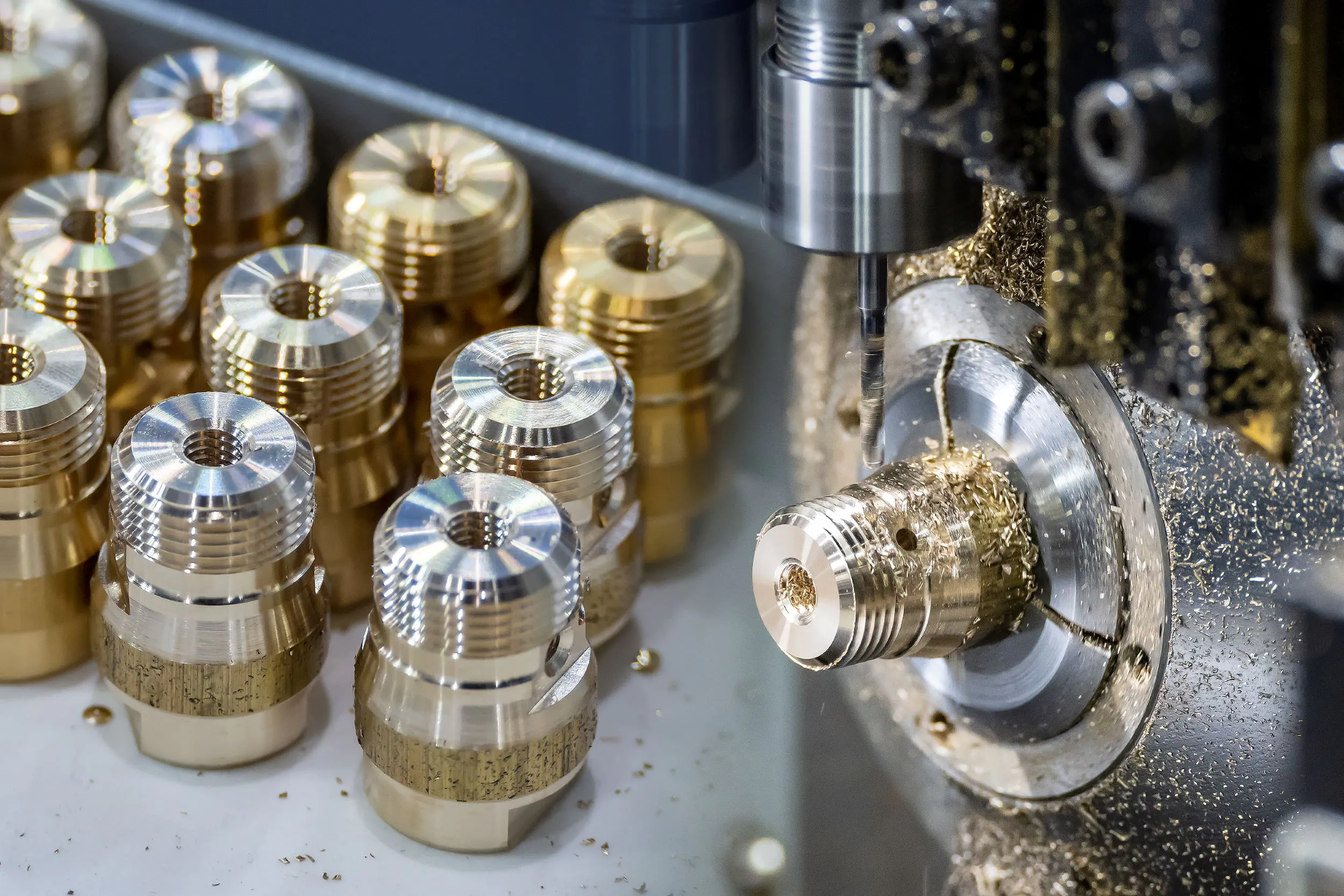In the dynamic and competitive field of manufacturing, the ongoing debate surrounding CNC vs. Traditional Machining techniques is more relevant than ever. Both methods have distinct advantages and disadvantages, playing pivotal roles in shaping manufacturing efficiency. This article aims to dissect the complexities of these machining techniques and explore their implications in 2024.
Understanding the Basics
What is the Difference Between CNC Machines and Traditional Machines?
CNC, or Computer Numerical Control machines, operate through automated digital instructions that control the machining process. This level of automation contrasts significantly with traditional machining, where operators manually control the equipment, leading to potential variations in product quality. The fundamental difference between a CNC and a non-CNC machine lies in automation versus manual control, a factor that profoundly influences manufacturing efficiency.
What is Traditional Machining?
Traditional machining is the original form of machining, characterized by the manual control of equipment by operators. This method, while adaptable and versatile, is labor-intensive and can result in variations in product quality due to human error. Traditional machining is often synonymous with custom machining services due to its ability to cater to unique and diverse designs.
Delving into CNC Machines
Disadvantages of CNC Machines
While CNC machines are celebrated for their precision and efficiency, they come with their set of challenges:
- Cost: The initial investment for CNC machines is substantial, posing a financial challenge for smaller manufacturers.
- Training: Specialized knowledge and training are imperative for operating CNC machines, necessitating additional time and resources.
- Maintenance: Regular and often costly maintenance is essential to keep CNC machines running smoothly.
Advantages of CNC Over Manual Machining
Despite the challenges, CNC machines offer several compelling advantages over traditional machining. One of the key benefits is their unmatched precision and accuracy, crucial in industries such as aerospace, healthcare, and automotive. The automation inherent in CNC machines minimizes human error, making them significantly more accurate than manual counterparts.
Another notable advantage is the speed and efficiency with which CNC machines operate. They can run continuously, 24/7, with downtime only required for maintenance and repairs. This continuous operation contrasts sharply with the pace of traditional machining, which is inherently limited by the operator’s speed, endurance, and working hours.
Biggest Disadvantage of Using CNC
Among the various challenges associated with CNC machines, the most significant is arguably the high initial cost and ongoing maintenance expenses. These financial considerations can be particularly daunting for smaller manufacturing entities or startups operating with limited budgets.
Three Advantages of CNC Machines
CNC machines stand out for several reasons, with three advantages being particularly noteworthy:
- Precision: The unparalleled accuracy and precision of CNC machines are indispensable in manufacturing, ensuring each product meets exact specifications.
- Efficiency: The ability to operate continuously significantly enhances manufacturing efficiency and output.
- Flexibility: The ease with which CNC machines can be reprogrammed to produce different parts offers flexibility and adaptability in production.
Why are CNC Machines More Accurate?
The superior accuracy of CNC machines can be attributed to their automated nature and the elimination of human error. Digital instructions guide the machine with pinpoint accuracy, ensuring consistency and adherence to specifications, which is particularly vital in industries where precision is non-negotiable.
Traditional Machining: A Closer Look
Traditional machining, while seemingly overshadowed by the technological advancements of CNC, still holds its ground in several applications. It offers adaptability to unique designs and is often associated with smaller-scale custom machining services. However, it is essential to acknowledge the limitations of traditional machining, particularly in terms of consistency, efficiency, and the potential for human error.
CNC Machines vs. Traditional Manual Machines: A Comparative Analysis
When juxtaposing CNC machines against traditional manual machines, two advantages of CNC are particularly prominent:
- Reduced Labor Costs: The automation of CNC machines necessitates less manual intervention, thereby significantly reducing labor costs and reliance on skilled operators.
- Consistency and Quality: The consistent quality achieved through CNC automation is challenging to replicate with manual machining, where variations and discrepancies are more likely.
Balancing the Pros and Cons
While CNC machines bring forth a plethora of advantages such as precision, speed, and consistency, they are not without their disadvantages. High initial costs, specialized training requirements, and maintenance needs are significant considerations. Conversely, traditional machining offers adaptability and lower initial costs but may compromise on quality, efficiency, and consistency.
Conclusion: Striking a Balance for Optimal Manufacturing Efficiency
In conclusion, the nuanced debate between CNC vs. Traditional Machining is far from straightforward. CNC machines, with their precision, efficiency, and consistency, are a formidable force in manufacturing. However, the financial investment in acquisition and maintenance can be a barrier for some. Traditional machining, with its adaptability and lower upfront costs, remains relevant, especially for custom projects and smaller-scale operations.
Striking the right balance and leveraging the strengths of both machining techniques is essential for optimizing manufacturing efficiency in 2024. As the manufacturing landscape continues to evolve, staying informed and adaptable is key to navigating the intricate interplay between CNC and traditional machining.



